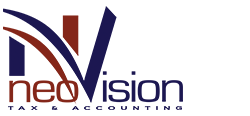Tax season is just around the corner, and as an attorney or fast food franchise owner, it’s time to ensure you’re maximizing your deductions and keeping more of your hard-earned money. Many business owners overlook deductions they’re entitled to, leaving money on the table. Don’t let that be you this year!
In this guide, we’ll walk you through some often-missed deductions and industry-specific tips to help you approach tax season confidently. Let’s get started!
Why Tax Deductions Matter
Tax deductions reduce your taxable income, which means less money owed to Uncle Sam. For attorneys, that might mean deducting expenses like legal research tools or CLE courses. For franchise owners, it could include deductions for inventory shrinkage or equipment repairs. The key is knowing what applies to your business.
Top Tax Deductions for Attorneys
Attorneys often juggle a wide range of expenses related to running their practice. Here are some common and overlooked deductions to keep in mind:
1. Continuing Legal Education (CLE) Courses
If you’ve attended CLE courses to stay up-to-date with legal trends and maintain your license, these expenses are fully deductible.
2. Office Space
Whether you have a leased office or work from a home office, you can deduct a portion of rent, utilities, and even maintenance. Just make sure your home office is used exclusively for business.
3. Subscriptions and Memberships
Professional memberships (like bar associations) and subscriptions to legal research tools, such as Westlaw or LexisNexis, are deductible as necessary business expenses.
4. Client-Related Costs
Any out-of-pocket expenses directly tied to a client matter, such as court filing fees or travel costs for depositions, are deductible.
5. Technology and Software
Whether you’re using case management software, a secure client portal, or cybersecurity tools to protect sensitive data, these tech expenses are deductible.
Top Tax Deductions for Franchise Owners
Running a fast food franchise comes with unique challenges and opportunities to save on taxes. Here are some of the most valuable deductions to know about:
1. Equipment and Repairs
The cost of maintaining fryers, ovens, and refrigerators can add up, but these expenses are deductible. Additionally, if you’ve purchased new equipment, you may qualify for bonus depreciation or Section 179 deductions.
2. Advertising and Marketing
From local radio ads to social media campaigns, your marketing expenses are fully deductible. If you’re paying franchise fees for national advertising, those are deductible, too.
3. Food Waste and Spoilage
Inventory shrinkage from spoiled or damaged food is a legitimate expense that can be written off on your taxes. Keep detailed records of these losses.
4. Employee Expenses
Wages, payroll taxes, and benefits provided to your employees are deductible. If you offer uniforms or reimburse employees for work-related expenses, those costs also qualify.
5. Franchise Fees
Initial franchise fees and ongoing royalty payments are generally deductible. Be sure to consult your franchise agreement for specifics on what qualifies.
General Tax Tips for All Business Owners
No matter your industry, these tax tips will help you stay organized and ensure you’re getting every deduction you’re entitled to:
1. Keep Detailed Records
Maintain receipts, invoices, and expense logs throughout the year. Using accounting software or working with a bookkeeper can simplify this process.
2. Separate Personal and Business Finances
Having a dedicated business bank account and credit card makes it easier to track expenses and avoid messy audits.
3. Consult a Tax Professional
Navigating the tax code can be overwhelming, especially with industry-specific nuances. A tax professional who understands your business can help you avoid costly mistakes and maximize deductions.
4. Take Advantage of Tax Credits
In addition to deductions, tax credits like the Work Opportunity Tax Credit (WOTC) for hiring certain employees can reduce your tax liability even further.
Why February is the Best Time to Act
By February, you should have most of the documentation you need to start preparing your taxes, including W-2s, 1099s, and year-end financial statements. Taking action now means avoiding the last-minute scramble and having time to identify potential deductions you might have overlooked.
Feeling overwhelmed by tax season? Don’t worry—our team specializes in helping attorneys and fast food franchise owners navigate their bookkeeping and taxes. We know the ins and outs of your industry and can ensure you’re getting every deduction you deserve.
Contact us today for a consultation and let us take the stress out of tax season!
Maximizing your tax deductions doesn’t have to be stressful. By staying organized, knowing which expenses qualify, and seeking professional guidance, you can approach tax season with confidence.
Start the year off right—get in touch with us today to make sure your books are in order and your deductions are maximized. Your bottom line will thank you!

